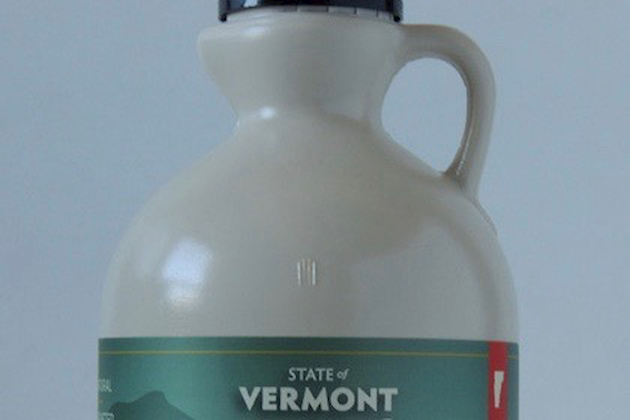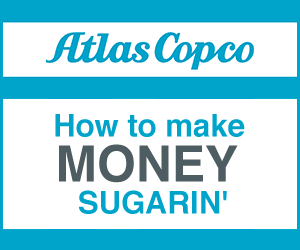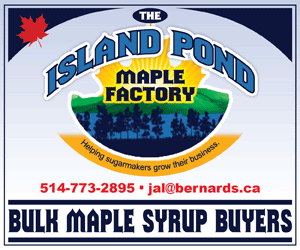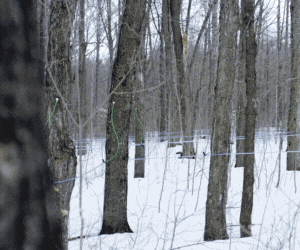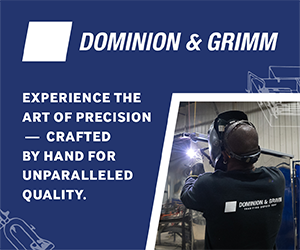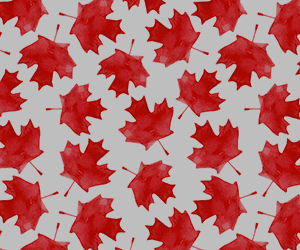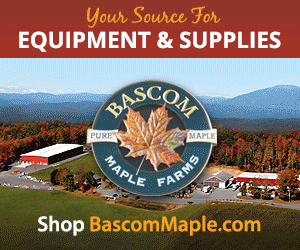BACK TO HOME
Sap & Syrup
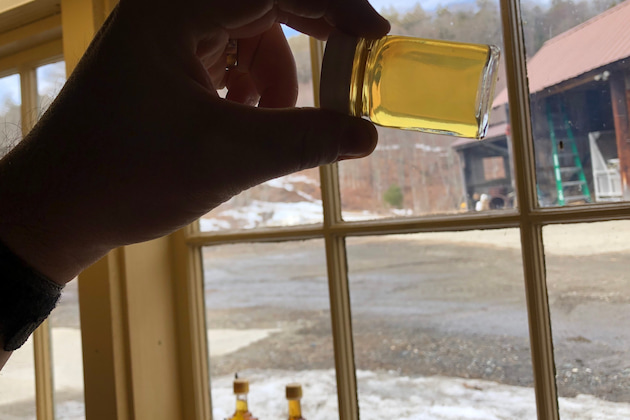
Making good flavor, tips and tactics on getting the best taste
Paul Post | May 7, 2021
SAINTE-MARIE, Que.—It’s all about the flavor.
Joel Boutin, of Quebec, makes thousands of syrup taste samplings each year including many for a large private maple producers club, which he serves as an extension educator and advisor.
A keen observer in all aspects of maple production, he also teaches high school students at a technical school in his area.
But Boutin's greatest area of expertise is "Good Flavor Factors," which was the topic of his presentation during Vermont Maple Conference Week.
Depending on a variety of practices, producers can try to achieve a delicate sweet, vanilla-type taste or the more complex maple flavor that tends to become more caramel-like as the season progresses. [ MORE ]
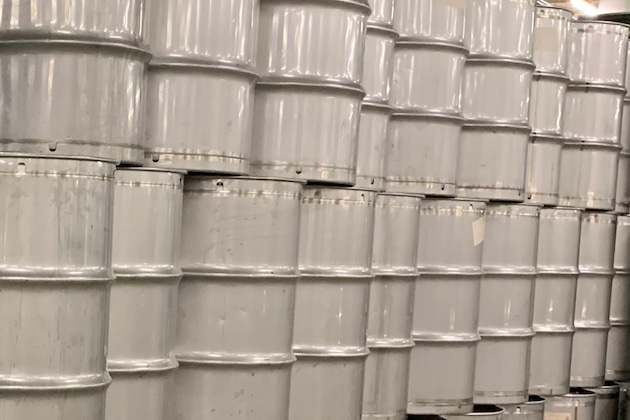
Vermont producers sitting on barrels
Peter Gregg | April 20, 2021
HIGHGATE, Vt.—A loose coalition of farmers in Franklin County, Vt. are sitting on an estimated 5,000 barrels of new crop syrup until they get what they feel is a fair price to sell it.
“Every producer I talk to says they’re holding their syrup,” said Jason Gagne of Gagne Family Maple in Highgate, Vt. who boils off 32,000 taps. “Nobody wants to let it go because they don’t like the price yet.”
Gagne stopped short of calling it a syrup strike and said there is no organized effort to keep the syrup off the market.
But he said producers in his county, as well as in Addison and Lamoille counties in Northern Vermont are frustrated with prices offered by packers.
“They know we’re not happy,” Gagne said. “Nobody is shipping syrup because we’re not happy.” [ MORE ]
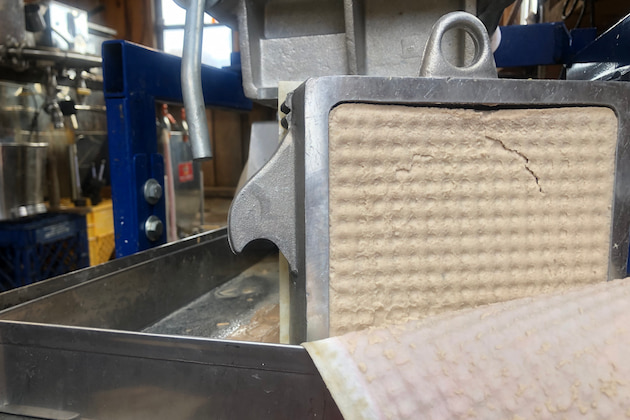
Keep an eye on the cake! Filtering tips from the experts
Peter A Gregg | March 26, 2021
ANTIGO, Wisc.—Keep an eye on the cake.
That was the message from filtering expert Jim Adamski of Adamski’s Sugar Bush of Antigo, Wisc. during a webinar on filtering techniques hosted by the Wisconsin Maple Syrup Producers Association in January.
“If you are using too much DE the cake will be solid as a rock,” Adamski said. “You will barely be able to push it out of the plate. If it’s hard like a stone and crumbles and breaks apart, you can tell you are using too much DE powder.”
Diatomaceous earth is the common filter aid sugarmakers use to help pass the syrup through the filter sheets and take out the gunk and sand.
Too little or too much can be perplexing for the sugarmaker.
The best way to tell if you got it right is when you break down the press, a nice beige colored cake is formed between the plates.
“If we’re not seeing a nice solid cake then we didn’t use enough DE powder in the process,” Adamski said. [ MORE ]
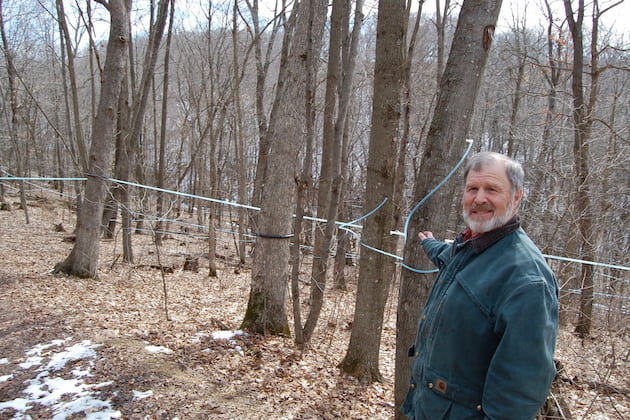
OPINION: Producers should demand a better price this season
Phillip Gudgeon | February 23, 2021
WESTBY, Wisc.—It’s a sellers market.Don’t squander this opportunity!
Last season we produced the biggest global syrup crop in history. Now that crop is almost sold out.
It seems the pandemic has been very good for maple consumption.
This has created a need for a good to above average crop in 2021 to satisfy demand. If we have a poor crop, “Katy bar the door!”
Let’s talk about price. [ MORE ]
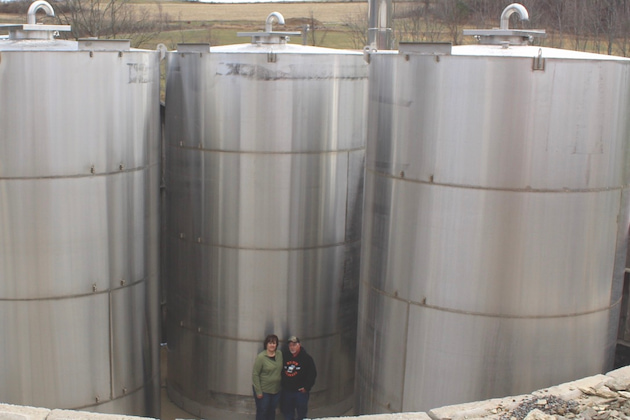
New CDL Sap Silos at Patterson Farms
Rachel Courtney | February 23, 2021
SABINSVILLE, Pa.—Big improvements at Pennsylvania's biggest sugarbush with new CDL sap silos.
Terri & Terry Patterson took over ownership as the 4th generation sugar makers of Patterson Farms in Sabinsville, Pa. after Terry’s father, Richard, passed away in 2017.
Richard would be proud to see them keeping his legacy alive by accomplishing plans he had for the farm before he passed, as well as bringing some of their own ideas to the business.
Patterson Farms is the largest producer in Pennsylvania with more than 80,000 taps.
As an effort to maximize efficiency they recently purchased three 12’x20’ CDL Stainless Steel Sap Silos.
[ MORE ]
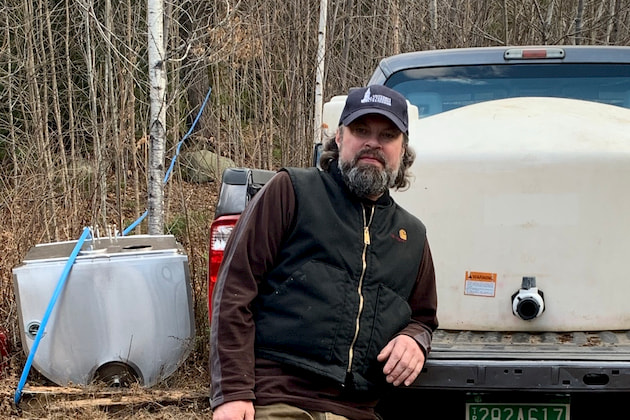
Showing some love for the sap-only producer
Peter Gregg | January 19, 2021
WESTON, Vt.—There’s money to be made in selling sap and leaving the syrup making to someone else.
“There is opportunity in sap-only enterprises,” said Chris Lindgren of UVM Extension who led an online seminar last month on the pluses and minuses of collecting the sap and letting someone else boil it.
“Sap-only businesses are less risky and there are less barriers to entry,” he said. “Selling sap is the easiest and lowest cost way to get started in the maple business.”
Lindgren is a sap collector himself, with approximately 700 taps spread out across three bushes in Weston, Vt. in the center of the state.
He said producers looking to get into the sap selling game should budget an investment of approximately $30 per tap, which will cover costs of a collection system, vacuum pumps, a generator or two, monitoring systems, transportation, reverse osmosis and structures.
[ MORE ]
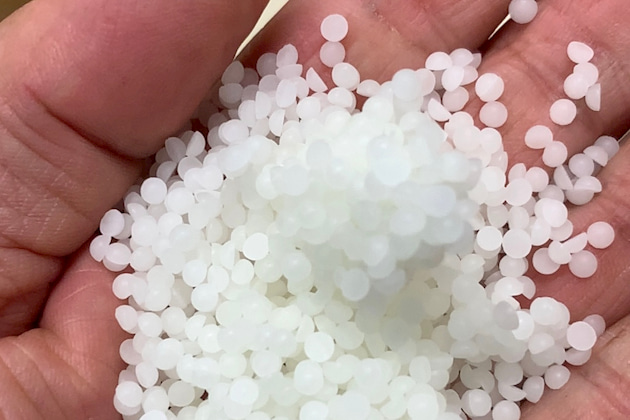
Sugarmaker tip: Best organic defoamer
Peter Gregg | January 7, 2021
ISLAND POND, Vt.—Try beeswax.
Probably the biggest change a sugarmaker will have to make once they switch to organic is defoamer use.
Conventional defoamers do not qualify so the producer must find an all-natural replacement that both knocks down the foam and also does not affect taste.
Many sugarmakers use sunflower oil or other oils similar.
Sugarmaker Joe Russo who manages the massive 470,000-tap Sweet Tree Inc. operation in Island Pond, Vt. uses beeswax.
“It’s fantastic,” Russo told The Maple News.
[ MORE ]
